Cardiac Atlas Project (CAP) is a worldwide consortium and online resource for integrating and sharing cardiac imaging examinations, together with parametric model-derived functional analyses and associated clinical information. We have established a large-scale database of cardiac imaging examinations and associated models and derived measurements in order to develop a shareable, web-accessible, structural and functional atlas of the normal and pathological heart for clinical, research and educational purposes. A goal of CAP is to facilitate collaborative statistical analysis of regional heart shape and wall motion and characterize cardiac function among and within population groups.
Atlases
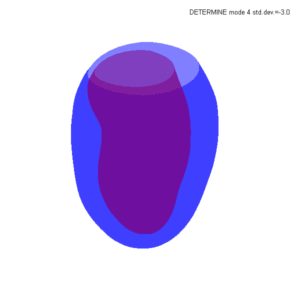
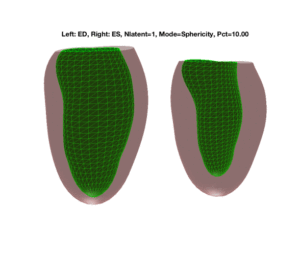
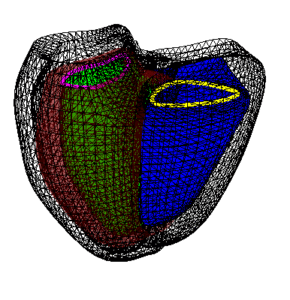
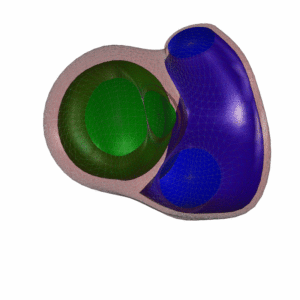
Datasets
We share different cohorts of cardiac MRI data, thanks to the generosity of our Data Contributors. Due to different terms of usage set by each Data Contributor, each dataset requires different rules to download. Before submitting your request application, please read the description of each dataset carefully.
Sunnybrook Cardiac Data (SCD)
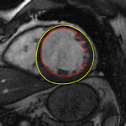
This is a public domain dataset that does not require any request authorisation. It contains 45 CMR study from mixed pathologies with expert-drawn SAX contours and 3D finite element models.
SCMR Consensus Contour
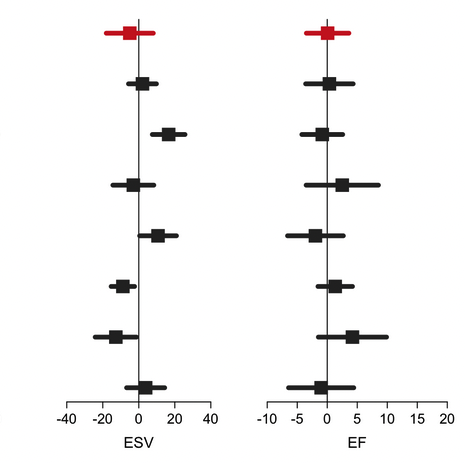
This dataset contains only 15 mixed pathology cases, multi-vendors and multi-centres. The consensus contours were derived from 7 expert readers from 7 world-class MR core labs. It is the perfect data for an external test validation set.
DETERMINE
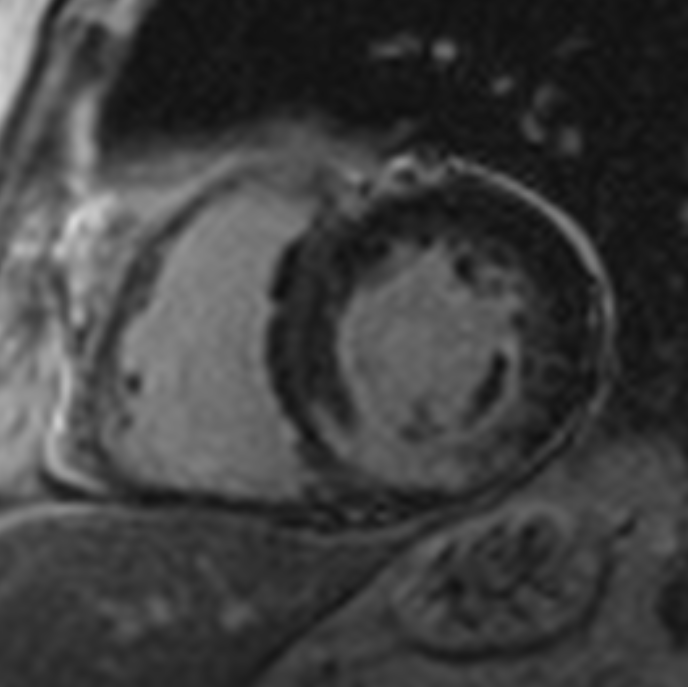
DETERMINE (Defibrillators to Reduce Risk by Magnetic Resonance Imaging Evaluation) cohort contains 450 patients with coronary artery disease and mild-to-moderate LV dysfunction. This cohort requires review request by the DETERMINE Data Contributor. No manual contours. No clinical diagnosis.
MESA
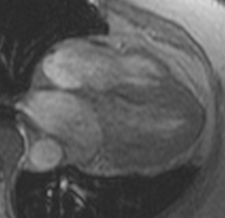
MESA (Multi-Ethnic Study of Atherosclerosis) cohort contains 2,450 asymptomatic CMR studies. This requires review request by the MESA Data Contributor Comittee. Note that MR images are legacy gradient echo (GRE) images. No manual contours.
Congenital Heart Disease
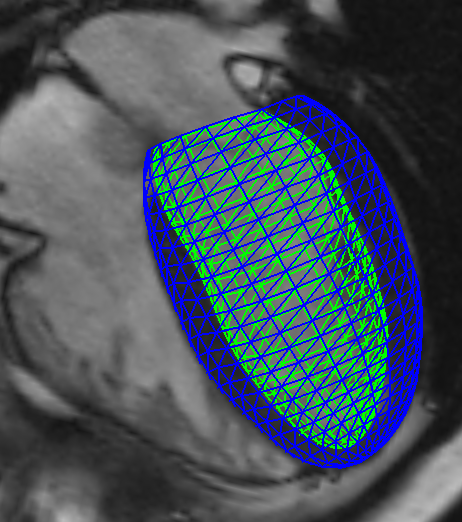
The Congenital Heart Disease (CHD) Atlas represents MRI data sets, physiologic clinical data, and computational models from adults and children with various congenital heart defects. The data have been acquired from several clinical centers including Rady Children’s Hospital San Diego, UC San Diego Medical Center, and Starship Children’s Hospital in Auckland, New Zealand.
MITEA
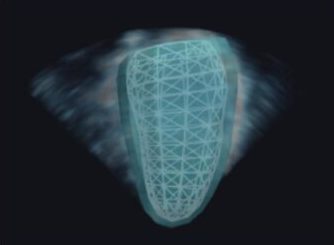
MITEA (MR-informed Three-dimensional Echocardiography Analysis) consists of 134 cases of 3D echocardiography images with labels. Each case has a pair of scan and re-scan images.
AMRG Cardiac Atlas
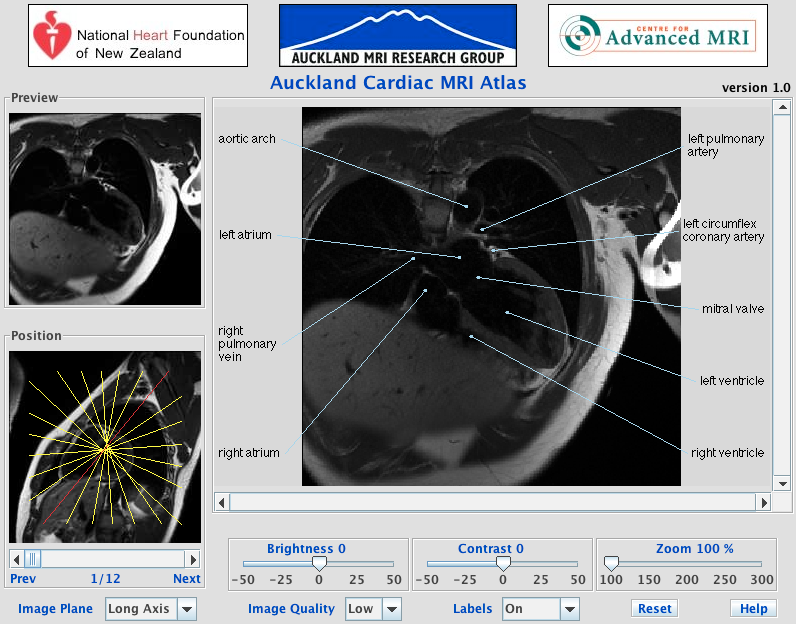
This is a public domain dataset that only contains a single healthy subject. No manual contours.
Challenges
Challenge datasets are important component in the medical imaging community to provide common datasets to benchmark new algorithms to solve common tasks. The Cardiac Atlas Project has been providing several challenge datasets in the field of cardiovascular image analysis, collaborating with the Statistical Atlases and Computational Modelling of the Heart (STACOM) community.
LV Segmentation

Automatically segment myocardium from 200 randomly selected DETERMINE cases: 100 cases with contours for training.
Landmark Detection
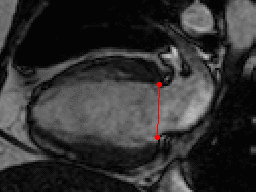
Automatically predict cardiac anatomical landmark using the same 200 randomly selected DETERMINE cases.
Motion Correction

Automatically correct motion breathing artefact from CMR perfusion image sequence.
LV Statistical Shapes

Automatically predict 3D LV shapes from patients with myocardial infarction. Data contains 100 randomly selected MESA (asymptomatic) and 100 randomly selected DETERMINE (MI patients).
Atria Segmentation
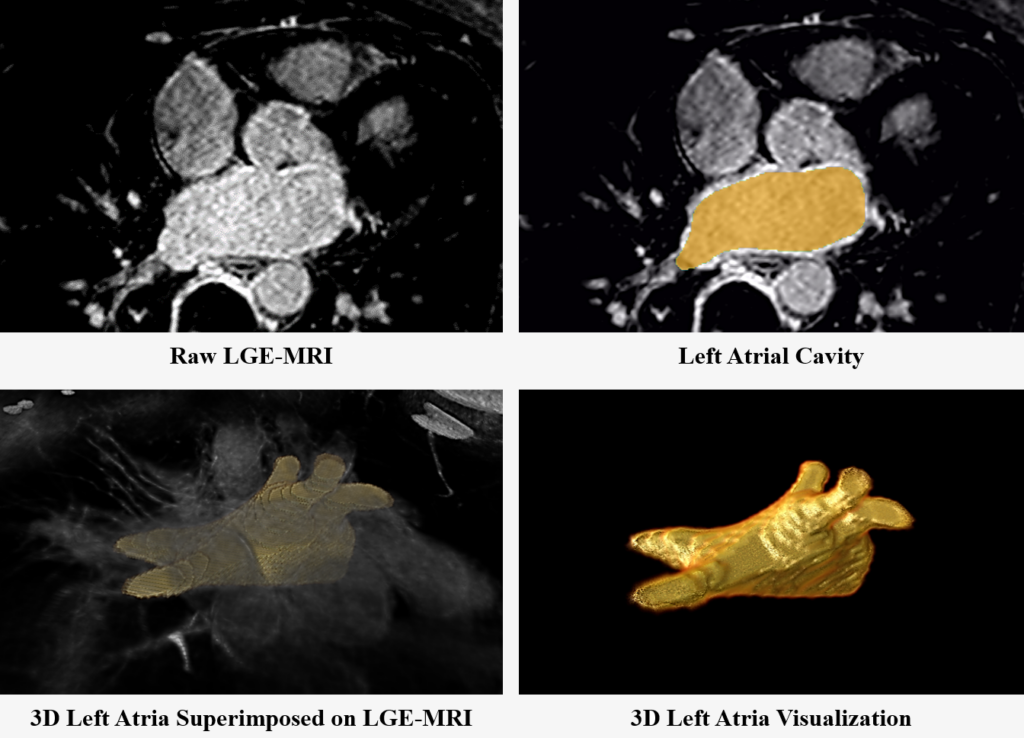
Fully automatic segmentation of the left atrial cavity from 3D GE-MRIs without any manual assistance
Motion Tracking
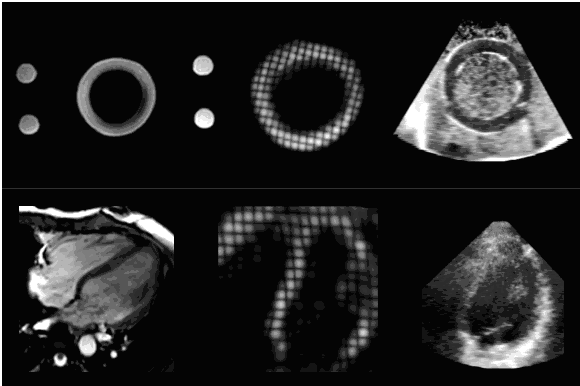
Track cardiac motion from a phantom case and 15 patient images consisting of both MRI (cine and tagged images) and 3D ultrasound images. A ground truth is also available. All data is open for public. This challenge was held at STACOM 2011 workshop.
Other STACOM challenges
More challenging challenges are provided by the STACOM community, including whole heart segmentation, motion tracking, left atria segmentation, scar segmentation, computional fluid dynamics, etc.
The Cardiac Atlas Project is funded by the National Heart, Lung and Blood Institute, USA, part of the National Institutes of Health.
Grant numbers: R01HL087773 and R01HL121754